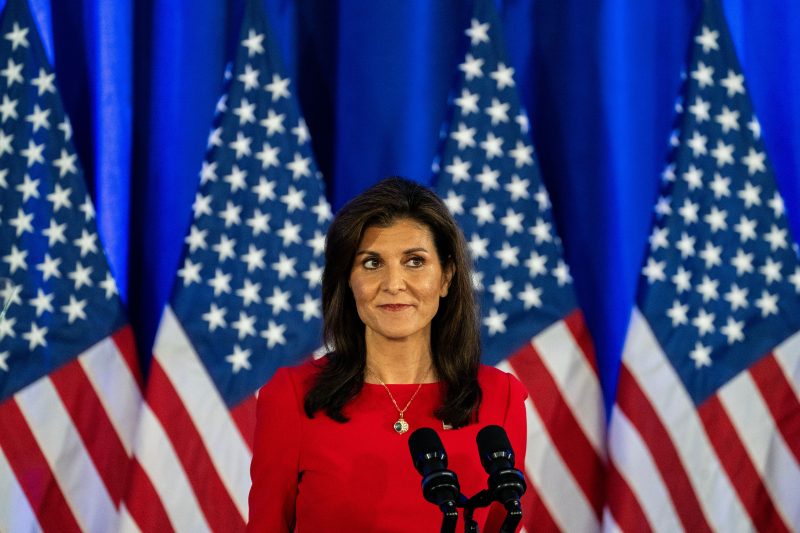In the realm of contemporary American politics, the persona of the Trump voter is often analyzed and dissected with great curiosity. One individual who personifies this particular demographic is Nikki Haley, the former Governor of South Carolina and U.S. Ambassador to the United Nations under the Trump administration. Haley’s political journey and alignment with former President Donald Trump make her a very specific and very typical type of Trump voter.
Born Nimrata Randhawa in Bamberg, South Carolina, to Indian Sikh immigrants, Haley’s rise in the political arena has been nothing short of remarkable. She made a name for herself as a conservative Republican, aligning with the Tea Party movement early in her career. Haley’s political stances have often mirrored those of former President Trump, particularly in areas such as immigration, foreign policy, and economic issues.
As Governor of South Carolina from 2011 to 2017, Haley gained a reputation for her strong stance on fiscal conservatism and her advocacy for business-friendly policies. She was a vocal critic of the Affordable Care Act and a proponent of tax cuts and deregulation. These positions, along with her charismatic and articulate communication style, endeared her to many conservative voters who were looking for a fresh face in the Republican Party.
Haley’s support for Trump during his presidential campaign in 2016 further solidified her image as a Trump voter. Despite initially being critical of Trump and endorsing his rival, Senator Marco Rubio, Haley eventually embraced Trump’s candidacy and served as a loyal surrogate for him. This transition from skepticism to staunch support is emblematic of many Republican voters who were initially unsure about Trump but eventually came to rally behind him.
As U.S. Ambassador to the United Nations, Haley continued to champion Trump’s foreign policy agenda, particularly his America First approach. She was known for her tough stance on countries like Iran and Venezuela and her unwavering support for Israel. Haley’s bold and sometimes confrontational style at the UN resonated with many Trump supporters who admired her brashness and willingness to challenge traditional diplomatic norms.
Despite her alignment with Trump on many key issues, Haley has also shown a willingness to diverge from him on certain matters. For example, she has criticized Trump’s handling of the Charlottesville protests in 2017 and his rhetoric on race. This ability to maintain a degree of independence while still being a vocal supporter of the President is characteristic of many Trump voters who appreciate his unorthodox approach but are not afraid to speak out when they disagree.
In conclusion, Nikki Haley represents a very specific and very typical type of Trump voter – a conservative Republican who shares many of Trump’s policy priorities and values but also maintains her own identity and principles. Her journey from a relatively unknown state politician to a prominent national figure reflects the complexity and diversity of the Trump voter base. As American politics continues to evolve, figures like Nikki Haley will undoubtedly play a crucial role in shaping the future of the Republican Party and the broader conservative movement.
